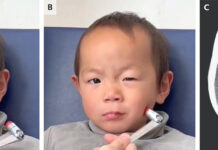Research led by the team at the University of East Anglia investigated whether fecal transplant can help restore cognitive function in the elderly.
In the past, Fecal Microbiota Transplant (FMT), or in simpler terms stool transplant, has helped in the treatment of gastrointestinal and neurological diseases. It involves the transfer of fecal matter from a healthy, screened donor to the colon of a patient. This helps alter the patient’s microbiome.
The Gut-Brain Axis
Recently, evidence has emerged of a bidirectional link between the central nervous system and the gut.
Research suggests gut flora plays a key role in this communication. The gut flora can change over time due to changes in diet, use of antibiotics, and aging.
Alterations in the gut flora produce chemicals that can affect the brain function. Consequently, leading to the development of anxiety, depression, autism, and Parkinson’s.
Fecal Transplant for the Aging Brain
Aging causes a decline in both physical and psychological well-being. Cognitive decline is one of the most common effects of aging.
The team of researchers aimed to test whether aging-related shifts in the gut’s flora can affect the brain’s function and cause a cognitive decline. The hippocampus is a part of the brain involved in causing cognitive changes.
We wanted to see whether transferring gut microbes from older to younger mice could affect parts of the central nervous system associated with aging.
Dr. David Vauzour (University of East Anglia)
To test their hypothesis, the researchers performed fecal transplants from older adult donor mice to younger adult mice. The younger mice were then investigated for anxiety, memory, and spatial learning.
Age-related effects such as anxiety and locomotor activity were not affected by the fecal transplant. However, younger adult mice had significantly impaired memory and spatial learning. Thus, reflecting alterations to the hippocampus.
The changes in the hippocampus arose as a result of a change in the expressions of proteins involved in its function.
This work highlights the importance of the gut-brain axis in ageing and provides a strong rationale to devise therapies aiming to restore a young-like microbiota to improve cognitive functions and quality of life in the elderly
Dr. David Vauzour (University of East Anglia)
In conclusion, age-related changes in the gut flora strongly impact the brain’s pathways, leading to a decline in memory and spatial learning.
Researchers hope that in the future fecal transplant will help improve cognitive function in the elderly. Thus, improving their quality of life.
Reference:
D’Amato, A., Di Cesare Mannelli, L., Lucarini, E. et al. Faecal microbiota transplant from aged donor mice affects spatial learning and memory via modulating hippocampal synaptic plasticity- and neurotransmission-related proteins in young recipients. Microbiome8, 140 (2020). DOI: 10.1186/s40168-020-00914-w
Carabotti M, Scirocco A, Maselli MA, Severi C. The gut-brain axis: interactions between enteric microbiota, central and enteric nervous systems. Ann Gastroenterol. 2015 Apr-Jun;28(2):203-209. PMID: 25830558; PMCID: PMC4367209.




